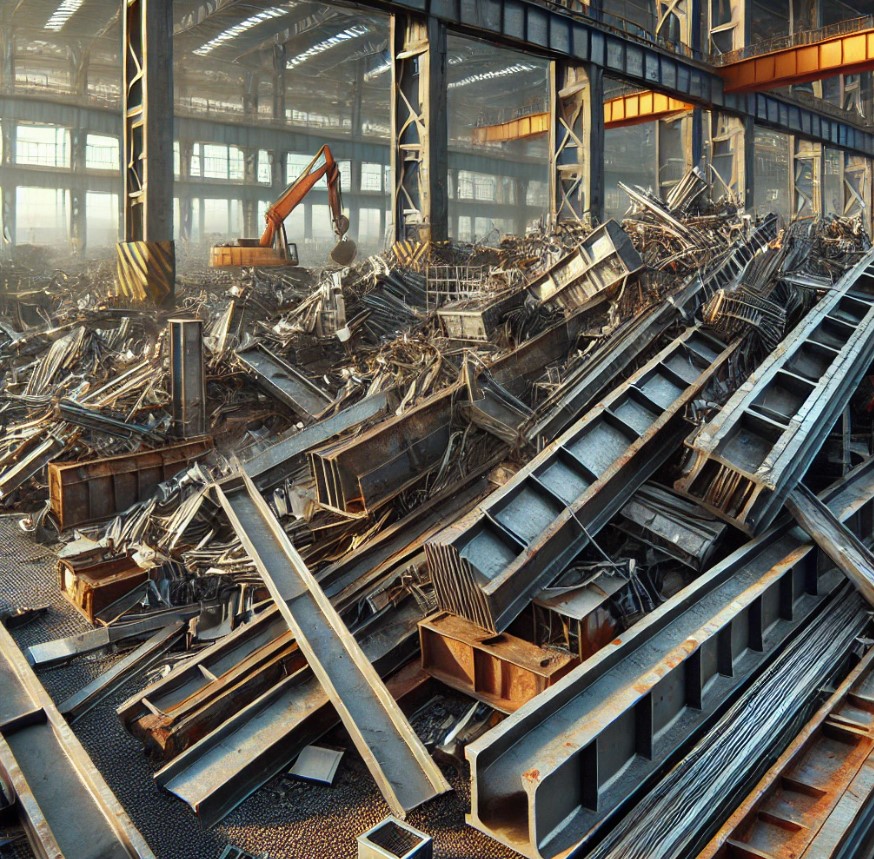Iron can be found everywhere in Khobar’s industrial or busy neighborhoods, including rusting gates, old appliances, piles of scrap from renovation projects, and abandoned metal beams from building sites. These piles of iron are considered waste by many. However, the truth is very different. In addition to being valuable, iron scrap is an essential resource for the economy and environment.
Recycling iron scrap has never been more crucial in the Eastern Province of Saudi Arabia, which includes Dammam, Jubail, Qatif, and Al Ahsa. Throwing away iron is a missed opportunity on several levels, whether you’re a business handling industrial waste or a homeowner cleaning out an outdated storage space. Here are some reasons why iron scrap should never be dumped in a landfill and the advantages of properly recycling it in Khobar.
Iron: The Giving Metal
One of the most recycled materials in the world is iron. Iron can be melted down and reused indefinitely without losing strength or durability, in contrast to some materials that lose quality when recycled. Because of this, it is crucial in sectors like manufacturing, automotive, and construction.
Recycling iron scrap lowers the need for new iron ore mining, which uses a significant amount of water, energy, and land. Using recycled iron (or steel) reduces energy consumption by 60% when compared to producing it from raw materials, according to the World Steel Association.
This small act of recycling can help strike a balance between sustainability and growth in Khobar, where urban development is booming.
Avoiding Soil Contamination and Landfill Overflow
Tons of iron scrap are disposed of in landfills throughout Eastern Saudi Arabia each year. In addition to wasting space, rusting iron has the potential to gradually release toxic substances into the groundwater and soil. This is particularly troubling in the agricultural regions close to Al Ahsa, where farming depends on clean water.
We contribute to lowering environmental pollution and extending landfill lifespans by preventing iron scrap from ending up in landfills, two important objectives of Saudi Arabia’s Vision 2030 waste management plan. Visit the UNEP Waste Management Outlook to learn more about the harm that landfill waste causes to ecosystems.
Converting Waste into Profit: The Financial Argument
Iron scrap has economic value in addition to environmental value. Iron can fetch competitive prices from scrap buyers in Khobar and neighboring cities, particularly if it is sorted and free of impurities. Unused iron rods, pipes, and sheets can be sold for a substantial profit by construction firms, workshops, and even homes.
Visit our scrap price updates to view the most recent iron scrap prices in your region. Regardless of the size of your material pile or truckloads, it is worthwhile to determine the true value of your “waste.”
Easy Heavy Iron Scrap Pickup Services
Iron’s bulk and weight are some of the reasons why people are reluctant to recycle it. Without the right tools, moving big metal beams or pieces of machinery is difficult. Fortunately, a lot of scrap buyers in Khobar, Dammam, and Jubail now provide pickup services for free or at a reasonable cost.
These services dispatch a crew to your site, load the scrap, weigh it on approved scales, and provide you with immediate payment. You won’t have to worry about heavy lifting or transportation thanks to this convenience. Go to our pickup request page to arrange a hassle-free collection.
Recycling Iron Lowers Emissions and Saves Energy
One of the most energy-intensive industrial processes in the world is the production of new iron from ore. It entails operating enormous blast furnaces, moving raw materials, and mining. We can drastically cut greenhouse gas emissions and save a ton of energy by recycling scrap iron.
One ton of recycled steel saves enough energy to power roughly eighteen homes for a year, according to the US EPA. Every bit of conservation counts in areas like Eastern Saudi Arabia that are energy-hungry.
Endorsing the Circular Economy in Saudi Arabia Seeing
The circular economy, an economic model that minimizes waste, keeps materials in continuous use, and reduces the extraction of natural resources, is based on iron recycling. An important actor in the Kingdom’s drive for this sustainable future is the Eastern Province of Saudi Arabia.
The decision to recycle by Khobar’s citizens and businesses directly supports the country’s sustainability objectives and aids in the creation of jobs in the expanding recycling industry. See our recycling practices for a detailed look at how your scrap contributes to this cycle.
In conclusion, don’t waste your iron.
In Khobar, discarding iron scrap is not only a waste of resources; it also represents a lost chance for community support, environmental preservation, and financial gain. Recycling is the better option whether you’re dealing with household metal waste, leftover construction steel, or outdated machinery.
You can convert heavy, unwanted iron into cash and contribute to Saudi Arabia’s transition to a cleaner, greener future by partnering with certified scrap buyers who provide pickup services. Act now. Your work has an impact.

